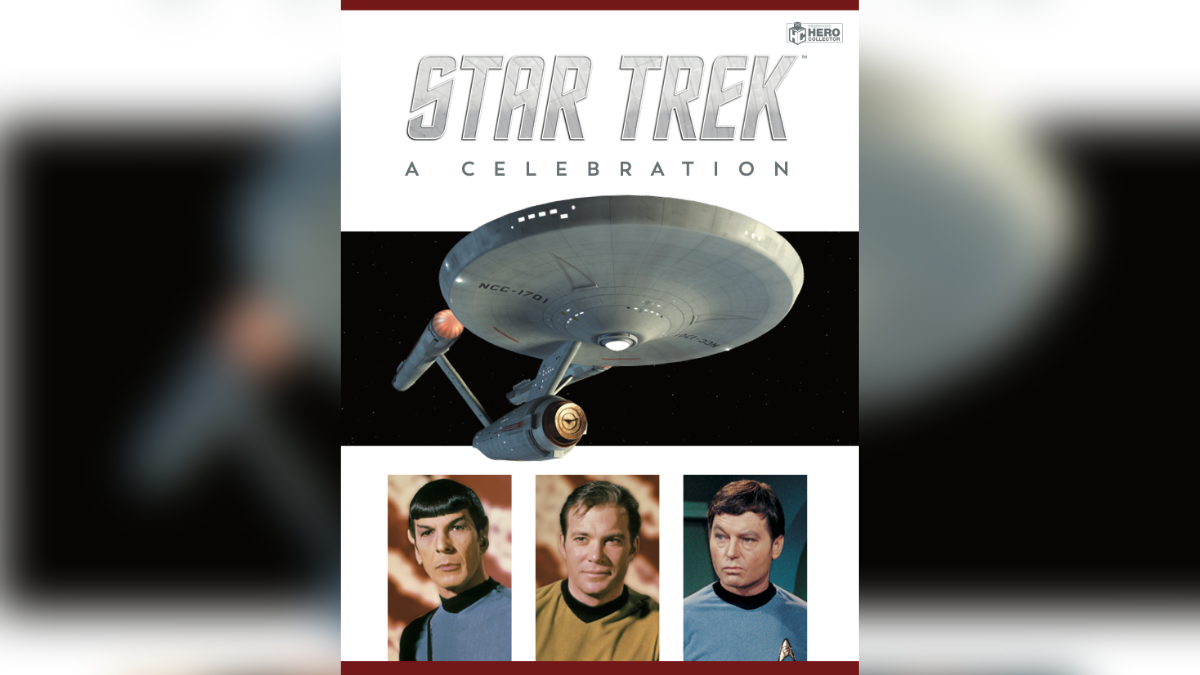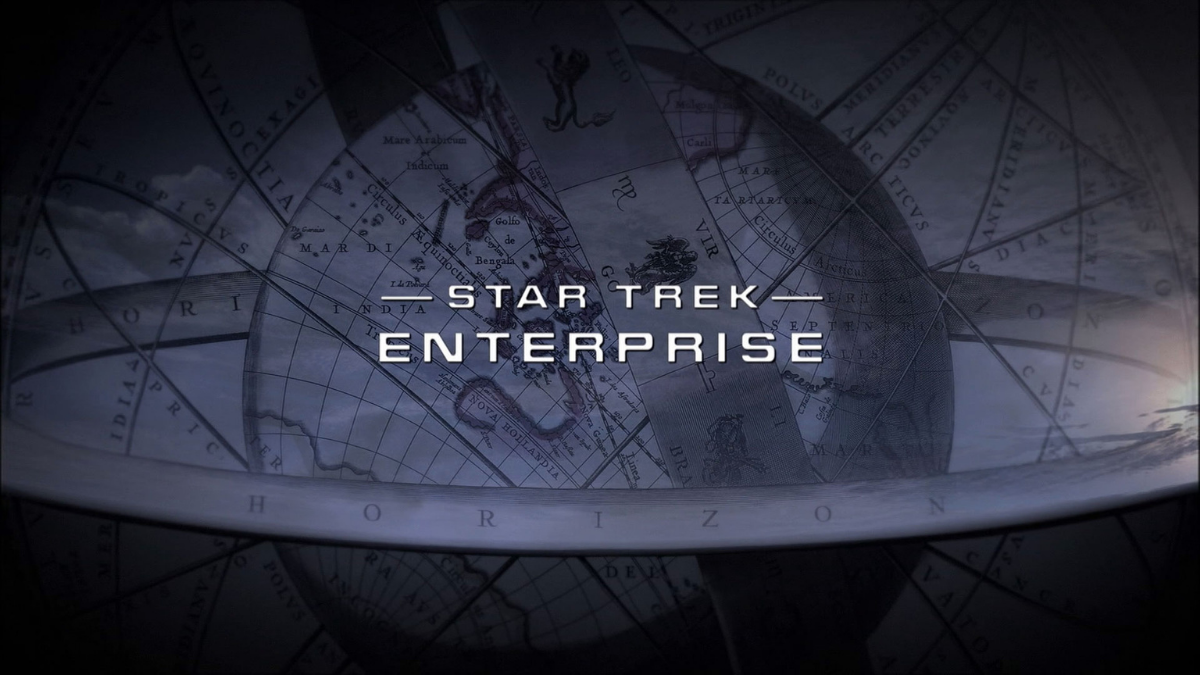INTERVIEW: Author Ian Spelling on why new book Star Trek: A Celebration is like nothing you've seen before

Star Trek: A Celebration by Ben Robinson and Ian Spelling
OCTOBER 11, 2021 - Ian Spelling has landed interviews with a number of cultural icons, and he is also a lifelong Star Trek fan, whom you might know from his panels at conventions or editorship at StarTrek.com. Now he has co-authored a new Star Trek book and has let us turn the tables and ask him a few questions.
In an interview you gave last year, you talked about the “crazy access” you’ve had to celebrities you’ve written about over the years, since you were in college. You’ve talked with people ranging from Meryl Streep and Steven Spielberg to Paul McCartney. But you interviewed Gene Roddenberry and George Takei early on. How did those come about?
Back in the 1980s, while in college, I was introduced to the junket system for movies. The big studios would bring in press from all over the country and, in many cases, all over the world, for a weekend of print press and television interviews. A few studios decided to include college journalists as well.
So, I was in New York City for That Was Then, This Is Now, Cocoon and Prizzi's Honor, and in Los Angeles for Pretty in Pink, Gung Ho, and Star Trek IV: The Voyage Home. Most of these involved what are called roundtable interviews. If there are 42 print journalists and six people from a film, we all go into a ballroom or a hotel suite and the press sit seven at a table. The six "talent" sit one at each table. We talk to that person for 15 or 20 minutes and then the talent moves to the next table. After two hours, we have six interviews we can use to write our features. And the talent was usually several of the actors, plus the director, and either a producer or writer. In some cases, the studio might put all the talent in one room at a dais and hold a press conference rather than do roundtables. And, in most cases, the bigger newspapers and magazines and, later, websites, also got one-on-one time with the talent. Also, the talent might do one-on-one phone interviews.
The pandemic, of course, changed the game considerably, and a lot of interviews now are done by Zoom. But interviews happen -- back when I started and now -- when studios or networks or streaming services want to promote their latest product. And if you write for an outlet whose readers the publicists want to reach, you can get time with the actors or filmmakers.
And, yes, among my earliest interviews were [Gene] Roddenberry and [George] Takei, as well as Jimmy Doohan, Mark Lenard, Majel Barrett-Roddenberry and Walter Koenig, who all talked to me for my college newspaper, the Albany Student Press. They didn't have to. I was just a kid, 21 or 22. But they were kind enough to carve out a few minutes. I just went up to Roddenberry, Barrett-Roddenberry, Doohan and Lenard at conventions and asked them to talk with me. And for Takei and Koenig, back in the day, many actors stayed at the same hotel where the con was happening. So, I called the hotel asked them to put me through to Mr. Takei's room and at another convention, Mr. Koenig's room, and the front desk person did so. And they both said yes to interviews. I sold the Roddenberry and Barrett-Roddenberry interviews to Dave McDonnell at Starlog, and that set my whole journalism career in motion.
Bringing it full circle, when I moderated Koenig's panel at the big Las Vegas convention this past August, I had the tech team put my Albany Student Press interview with Walter up on the screen and I read aloud the story's intro for Walter and the audience. It was a very sweet moment, and it was 36 years in the making.
Clearly Star Trek is a significant part of your history. As we like to ask here: what's your Star Trek story? That is, how did you come to Star Trek and why do you stay?
WPIX, Channel 11 in New York showed repeats of the original series at 6 and 11pm every weeknight. That's where it all started. I loved the show, saw the episodes repeatedly, and loved what Star Trek stood for. That was the late 1970s. A few years later, I started going to conventions. Most of the cons, actually nearly all of them, were Creation conventions. That's where I ended up doing some of my first interviews.
Decades later, when I was editor of StarTrek.com, it was Creation's Adam Malin and Gary Berman who asked me to moderate panels at the official convention, and I'm still moderating conventions for them even now that Creation's cons aren't official. So, again, it's an amazing full-circle situation. And though Star Trek has evolved and changed, as it must, it's still about something, still saying we can be better than we are now. And I love that.
Your new book, co-written with Hero Collector’s Ben Robinson, is Star Trek: A Celebration. Much has already been said about The Original Series over the years, so would you let us in on your vision for this book? What will readers take away from the book that they maybe haven’t seen before?
Hero Collector had already done [Star Trek]: Voyager: A Celebration, and Ben, who heads up Hero Collector and co-wrote the Voyager book, asked me to co-write Star Trek: The Original Series: A Celebration with him. Everyone I know had said over the years that I should write a book and I never mustered the courage to put pen to paper, even though it was a bucket-list thing for me. So, now I was being asked -- asked! -- to do a book about one of my favorite shows, and I couldn't pass it up.
Yes, so much has been written about TOS. Ben and I asked ourselves, what stories hadn't been told? What did we want to know more about? Where could we separate myth from reality? Who was still alive that hadn't been interviewed or rarely ever been interviewed? What photos hadn't been seen? One key aspect of TOS Celebration is that while many books have covered specific aspects of Trek -- ships, actors, etc. -- no book had explored it all: the show's creation, production, impact. We wanted several voices, where possible, remembering an event or an episode. Ben likes to say he wants the Celebration books to be "a convention in a book," and that's the goal.
We found editors, stunt people, guest stars, prop makers, the casting director, who are still with us and gave us great stories. As an example, I spent two weeks tracking down Reuben Klamer, who created the phaser rifle for "Where No Man Has Gone Before." It helped sell NBC on the idea that Trek could be an action show, and not only heady sci-fi. Klamer was 99 and in ill health, and we didn't think it'd happen. One day in March 2021, his assistant called to say he was having a good morning and could talk. I interviewed him right then and there. Klamer passed away a few weeks ago, so I am doubly thrilled we have him in the book and gave him the opportunity to discuss his unique place in Trek history.
The other thing I'll add, quickly, is the photos in the book are something many fans probably haven't seen before. We've got pictures in there that even some of the actors hadn't seen. I showed George Takei the book and he asked where we got a couple of the photos of him as Sulu that were new to him. There are costume sketches by William Ware Theiss that are remarkable and incredibly rare. One of my favorite days working on the book was doing a Zoom call with Ben, James Cawley and his son, Patrick. James runs the Star Trek Set Tour in Ticonderoga, New York, and he has amassed an amazing private collection of TOS photos. He was kind enough to go through his files page by page with us during that Zoom call. Ben and I sat there like kids in a candy shop, ooh-ing and aah-ing over these pics we'd never glimpsed before. And then James let us use them in the book.
As you’ve mentioned, Star Trek: A Celebration promises new interviews and never-before-seen art. What are you personally most excited for fans (especially seasoned ones) to discover?
The photos and sketches are great. Personally, I love the art on page 191, where you've got three drawings of the Dohlman of Elas on top, with three photos of France Nuyen in the resulting costumes on the bottom. And for fans who like Trek history and stories they might not know, we're proud that we've got new interviews in the book with April Tatro, who played the human version of the cat, Isis, in "Assignment: Earth," Andrea Dromm, who played Yeoman Smith in "Where No Man Has Gone Before" and then opted out of Star Trek to make the movie The Russians Are Coming, The Russians Are Coming, and Carey Foster, who is the last living person to act in "The Cage" with Jeffrey Hunter and then also on Star Trek with William Shatner.
Oh, and we have Whoopi Goldberg discussing why Nichelle Nichols and Uhura were so important to her, plus Jeffrey Hunter's son, Chris, sharing memories of talking with his dad about Star Trek.
As you were collecting material, talking to people, and so on, did you discover a need to, shall we say, correct the historical record at any points along the way?
Yes and no. It was 55 years ago. We weren't there. And, it's just the nature of time and humans, but stories change and evolve. Where we could, we tried to separate fact from fiction, but a lot of the people involved are no longer with us. As an example, there's a story about Janos Prohaska, the stuntman and creature costume maker, trying to sell the producers on his Horta costume. There are several different versions of that same meeting that were told by the people in the room at the time! If you look closely at the book, if there's a story about something in Trek history that's evolved into myth, we put the comments of the person discussing it in quotes, so that the reader knows that is that particular person's interpretation of events.
Then there's Gene Roddenberry. Some people think he's a saint and some think he was a sinner. To us, he was an imperfect man who had a great, noble idea for a TV show and made it happen. He wanted the show to be about something and he wanted it to make money because, make no mistake, he was a businessman. That's the Roddenberry we've tried to present.
Star Trek: A Celebration follows on from Star Trek: Voyager: A Celebration. Are there other “Celebration” books in the works? And what’s next for Ian Spelling?
There are more Star Trek Celebration books in the works, and Star Trek: The Next Generation: A Celebration will be next, out in the fall of 2022 in time for the show's 35th anniversary. I am writing that book as we speak.
What else for me? As always, I'm trying to make a living, so I juggle writing the TNG book with doing some public relations projects and also writing for a variety of different magazines and websites. What's funny is when my worlds collide. The other day I had to watch a powerful indie drama called Mass, which co-stars Jason Isaacs, in advance of a phone interview with Jason yesterday. I'd interviewed him for Harry Potter and a show called Awake, as well as for Star Trek: Discovery. I also moderated a panel for him at Star Trek Las Vegas in 2019. It's not as if we're best friends, but our professional paths have crossed several times over the years, and we've always gotten on nicely. We both thought it was very cool to reconnect yesterday and to discuss a project that had nothing to do with Star Trek. That said, of course I had to ask him one Star Trek question. And the answer was, yes, if they could somehow bring back Lorca, he'd be interested in playing the character again.
Thanks to Ian Spelling for taking the time to talk with us!
Star Trek – A Celebration is the second installment in Hero Collector’s series of Star Trek Celebration books. The 256-page hardcover is available now for pre-order at Amazon.com, www.penguinrandomhouse.com, Bookshop.org, or wherever you get your books.
David is a contributing writer for Daily Star Trek News on the Roddenberry Podcast Network. He is a librarian, baseball fan, and book and movie buff. He has also written for American Libraries and Skeptical Inquirer. David also enjoys diverse music, but leans toward classical and jazz. He plays a mean radio.





